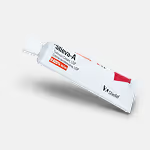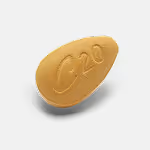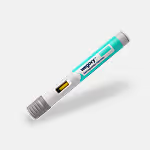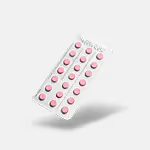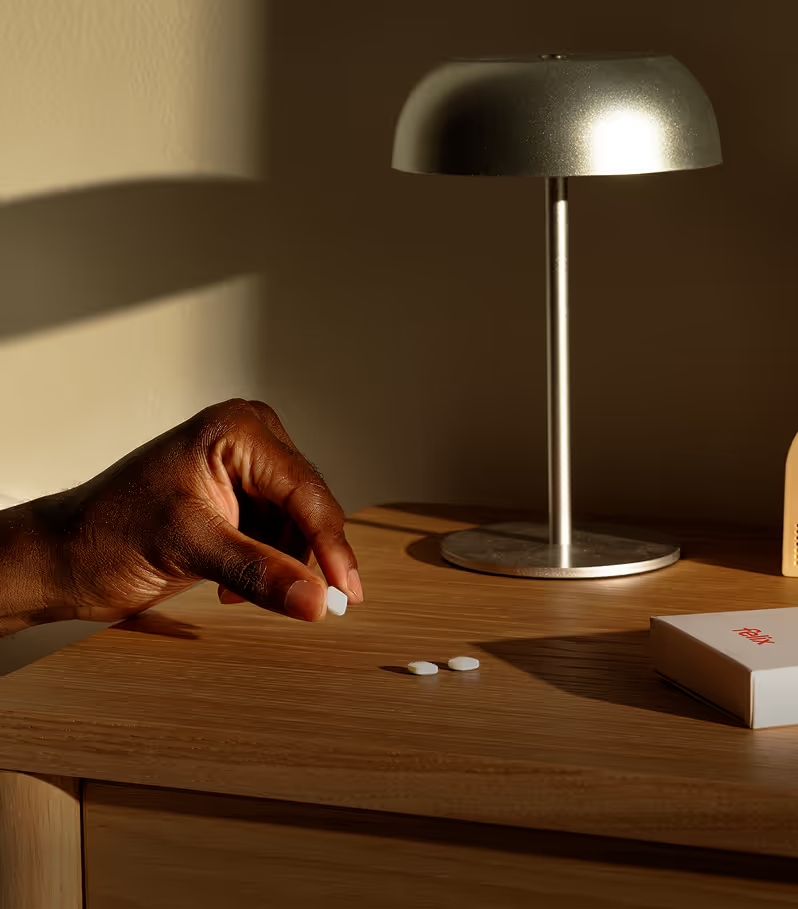Download the Felix App
Earn reward, visit our shop and get exclusive offers on the app
Download nowEarn reward, visit our shop and get exclusive offers on the app
Download nowPut your health first in 2026 with free visits on all categories, and $200 off longevity testing.
Download nowPut your health first in 2026 with free visits on all categories, and $200 off longevity testing.
Download now
AI-generated summaries may be inaccurate and do not constitute medical advice. Third-party AI tools are not under Felix's control, and your use of them is at your own risk.
Erectile dysfunction is no joke. It can impact your confidence, emotional well-being, and relationships. Sometimes it can also indicate an underlying condition. That’s why it’s important to understand what erectile dysfunction is and what treatments are available.
Erectile dysfunction is common, but stigma can keep people quiet about their struggles. A 2020 study for the International Society for Sexual Medicine found that up to 48% of all men surveyed experience some form of erectile dysfunction. That’s almost half — hopefully that gives you some reassurance that if you’re struggling with erectile dysfunction, you’re not alone.
This guide will help you learn more about erectile dysfunction treatments available. As always, it’s best to talk to your doctor if you’re experiencing erectile dysfunction.
You’ve probably heard of erectile dysfunction. Unfortunately, there are a lot of common misperceptions about ED, and that can keep you from seeking proper treatment. Many individuals actually choose to do anything about their ED and hyper-masculine stereotypes can lead to silence and struggle.
ED is a clinical condition that is defined as persistent, recurrent difficulty getting and/or maintaining an erection satisfactory for sexual performance.
There are a variety of reasons you might be experiencing ED, and this is something your doctor can help you with. Addressing the underlying causes of ED may help your doctor determine the right treatment plan.
Here are some possible causes (this is not an exhaustive list and it’s always best to check with your doctor):
Proper blood flow is crucial to get and keep an erection. The difficulties are usually a result of the inflow of blood in the penis. This can be impacted by other conditions such as heart disease, high blood pressure, hardened arteries, and diabetes.
The ability to get or keep an erection comes from nerves in your lower spine. If those nerves are damaged or injured, this can block signalling and lead to erection difficulties.
Prostate cancer, colorectal cancer, or bladder cancer can all cause ED. While it’s more common in older men, both cancer and cancer treatments can cause erectile dysfunction. This is something your urologist can help you with.
Time to kick the habit! Drugs, alcohol, and smoking can have the unwelcome side effect of ED.
You’d be surprised how much emotional and psychological factors can impact your physical health, and sexual dysfunction is no exception. Conditions such as depression, anxiety, stress, and relationship troubles can make getting hard challenging. And yep, bedroom performance pressure can also lead to erectile dysfunction.
While there are numerous causes of ED, it’s important to have that conversation with your doctor who will most likely perform a few tests to determine what is causing your ED.
There are a few tests your doctor might perform in order to determine the underlying cause of your ED.
A physical exam is where your doctor will examine you physically, listen to your lungs and heart, check your blood pressure, and examine your testicles and penis. They may also check for an enlarged prostate or prostate cancer.
A psychosocial history exam includes questions around your emotional well-being, history of your ED, and other health and lifestyle conditions. These questions will help them determine the severity of your erectile dysfunction as well as give them better insight as to what might be causing it.
Some of those questions are:
These questions are important for your doctor to get a full picture of your health, lifestyle, and other conditions which might be contributing to your ED.
There are other tests your doctor might perform to rule out other underlying conditions or determine contributory factors to your ED.
This is used to examine both the arterial inflow and venous outflow of the penis to determine if there’s a problem.
A NPT test is a portable device that is worn on the thigh and used to evaluate the quality of your nocturnal erections. Similar to a heart monitor, an NPT test will store the data collected and your doctor can assess.
Blood tests can also be used to check for diabetes, heart disease, thyroid issues, and other endocrine issues.
Once your doctor has determined the underlying cause of your erectile dysfunction, they will recommend a treatment plan. This can include a combination of individual treatments (such as medications plus talk therapy) or it can include one treatment.
Treatments are those that address the underlying physical cause of your erectile dysfunction. This list is not exhaustive and it’s important to consult your doctor.
Intracavernosal injection (ICI) is a self-injection therapy where you inject medications that help you achieve an erection directly into the penis. ICI is an extremely effective treatment for ED, particularly for those who have found PDE5 inhibitors ineffective or intolerable.
However, ICI isn’t right for everyone. Given the injectable nature of this medication, people with motor problems that affect their hands might want to explore other treatment options. People who are taking MAO inhibitors (medications taken for depression, Parkinson’s, etc.) should stay away from ICI. Uncontrolled high blood pressure is also a risk factor.
As always, talk to your doctor.
Penile implants are a surgical option for the treatment of ED. They aren’t common and are usually reserved for people who haven’t had success with any other type of medication.
A penile implant can be an inflatable or malleable device that changes in size. It involves manual activation either by a pump or a malleable rod. Most implant devices typically last around 10 years.
It comes as no surprise that sex hormones play an integral role in erectile dysfunction. Depending on the levels of hormones, they can be both helpful and inhibiting. Determining if your erectile dysfunction is a result of endocrine (hormone) issues is done with a blood test.
Having balanced endocrine levels is important and one of the challenges with erectile dysfunction is with low testosterone. When you talk with your doctor, this is something your doctor may look for in their exam.
Life can be stressful and complicated, and unfortunately, this can impact intimacy. Stress, anxiety, and depression can all cause or contribute to erectile dysfunction.
But this can be addressed. Talking through these challenges and assessing life stressors can be beneficial, not just for your sex life, but in all areas of your life. Mental health is just as important as physical health.
Depending on what is causing your erectile dysfunction, lifestyle changes may plan a big role in treating erectile dysfunction. In some cases, it might even be the primary treatment plan.
Recommended lifestyle changes can include:
Regardless of what is causing your erectile dysfunction, these lifestyle changes are always recommended for better health. But again, it’s best to have this conversation with your doctor.
The treatments listed above may not be for everyone. It’s important to know what all of your options are, including non-prescription treatments.
Before you start any of these treatments, clear it with your doctor. Some methods may be more harmful than beneficial depending on what is causing your erectile dysfunction or any other underlying health issues. Some of these methods also don’t show any empirical evidence that they work. Again, talk to your doctor.
Acupuncture is a form of traditional Chinese medicine and is used for a variety of ailments including erectile dysfunction. The use of acupuncture is on the rise and is performed by stimulating acupoints with small sterilized needles, an electrical current, or local drug injections. It should always be performed by someone trained in acupuncture medicine.
The exact mechanism of how acupuncture works is not fully known, but there is some suggestion that it stimulates nerves that help produce chemicals involved with sexual functions like erectile dysfunction.
There are a few adverse side effects connected with acupuncture, which include:
Before you try acupuncture, check with your doctor.
L-arginine is popular in the exercise and dietary supplement world. It’s a form of amino acid that works as the building blocks for proteins. And since your body runs on proteins, it also has effects in other areas of your body.
While there is no concrete evidence that l-arginine is an effective treatment for erectile dysfunction, some studies have shown that when used in conjunction with ED medications, some patients have reported better outcomes than with PDE5 inhibitors alone.
L-arginine is a vasodilator, which means it opens blood vessels, allowing for freer blood flow. For some people, this might cause a problem, particularly those with cardiac issues, high blood pressure, or other vascular health concerns.
Before taking l-arginine, check with your doctor.
Penis pumps are also known as vacuum erection devices or VEDs. They work as a vacuum device that is fitted over the penis and uses a vacuum to draw blood to the penis tissue, resulting in an erection. VEDs are often used in conjunction with tension rings.
Because of the extent of adverse side effects, VEDs have a high discontinuation rate, and it’s advisable to check with your doctor before using one.
Side effects include:
As we mentioned, before using a VED device, consult with your doctor. Medical training is needed in order to prevent injury.
A tension ring is also known as a constriction band. It is an elastic ring that is fitted over the base of the penis and helps prevent blood flow, prolonging or assisting an erection. Tension rings should be used with extreme caution. If used improperly, injury can occur.
Side effects can include:
Before using a tension ring, contact your doctor first.
While erectile dysfunction can be distressing, it’s not something you need to deal with alone. There has been a lot of stigma surrounding sexual performance, but it shouldn’t be this way. We know we sound like a broken record, but it really is important to speak to a doctor about any type of ED treatment. Want to discuss your treatment options? Connect with one of Felix's healthcare practitioners today.
Medically reviewed by
References






